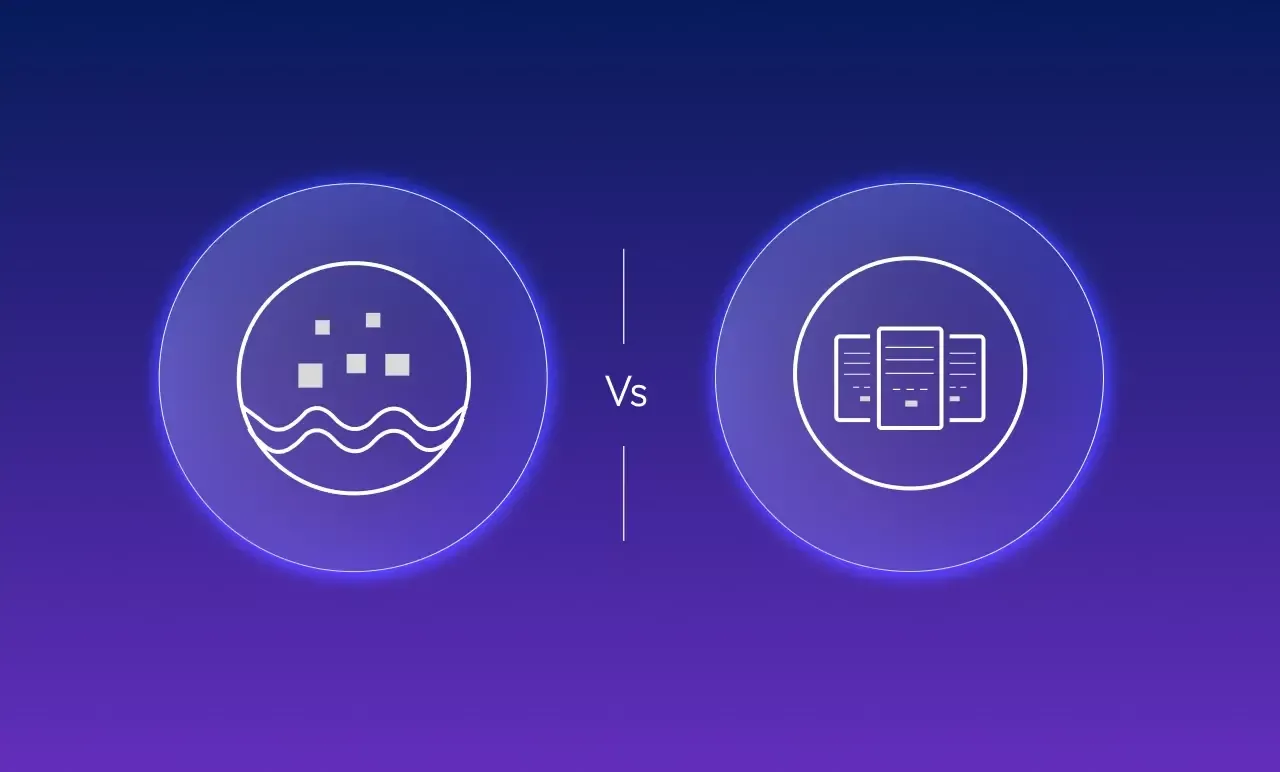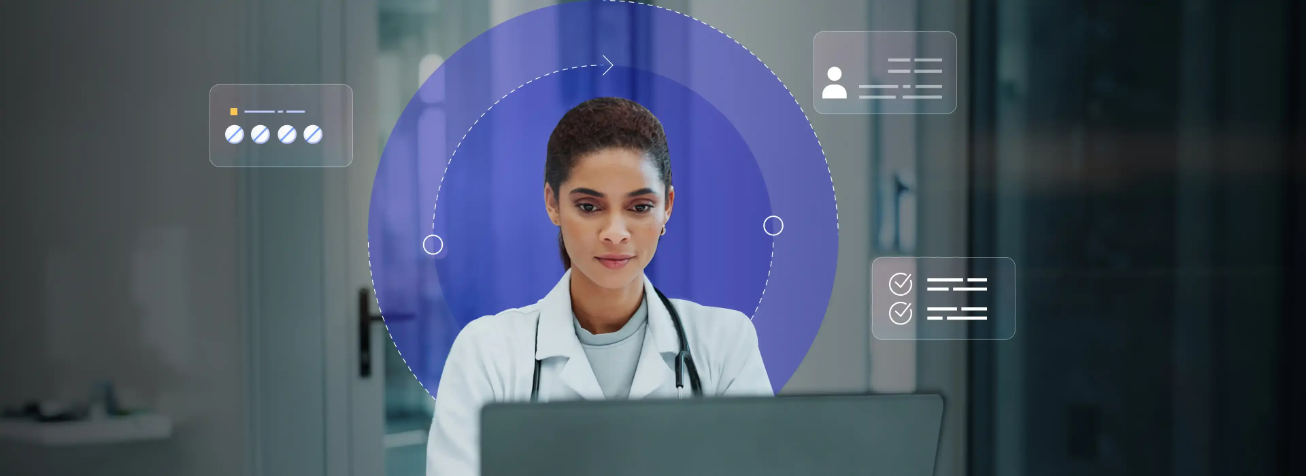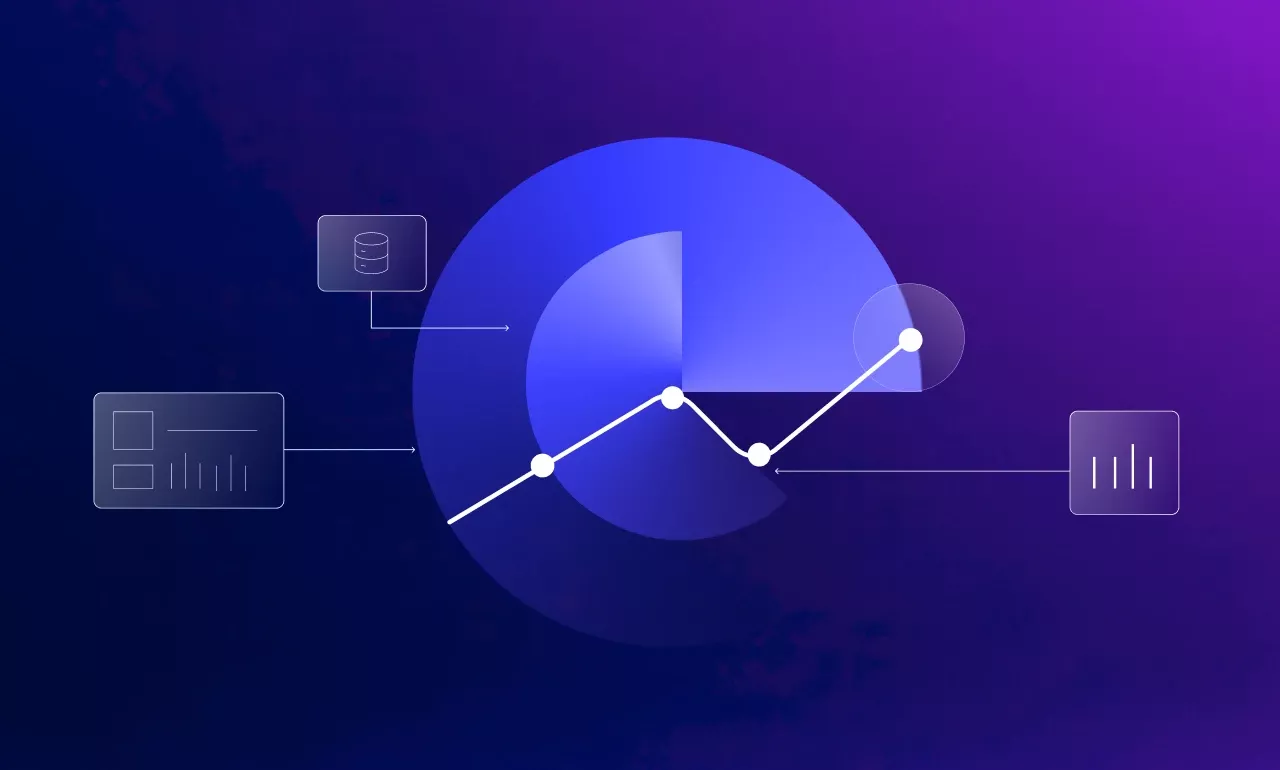Data Storage Decoded: Data Warehouse vs Data Lake Explained
Robotic Process Automation in Healthcare: 10 Key Use Cases
The healthcare industry faces growing challenges that strain operations and impact the quality of care, from high operating costs and redundant processes to strict compliance requirements and rising patient volumes. Amid these pressures, robotic process automation in healthcare has emerged as a transformative solution.
By enhancing efficiency and improving patient experiences, RPA is becoming a cornerstone of digital transformation in healthcare, much like its adoption in industries such as finance, manufacturing, and retail.
Use Cases of Robotic Process Automation in the Healthcare Sector
RPA utilizes "software bots" to manage high-volume, repetitive, rule-based tasks, seamlessly streamlining workflows by imitating human actions.
To better understand its impact, let’s explore some key use cases of RPA in healthcare and see how it not only lightens workloads but also enhances operational efficiency and productivity.
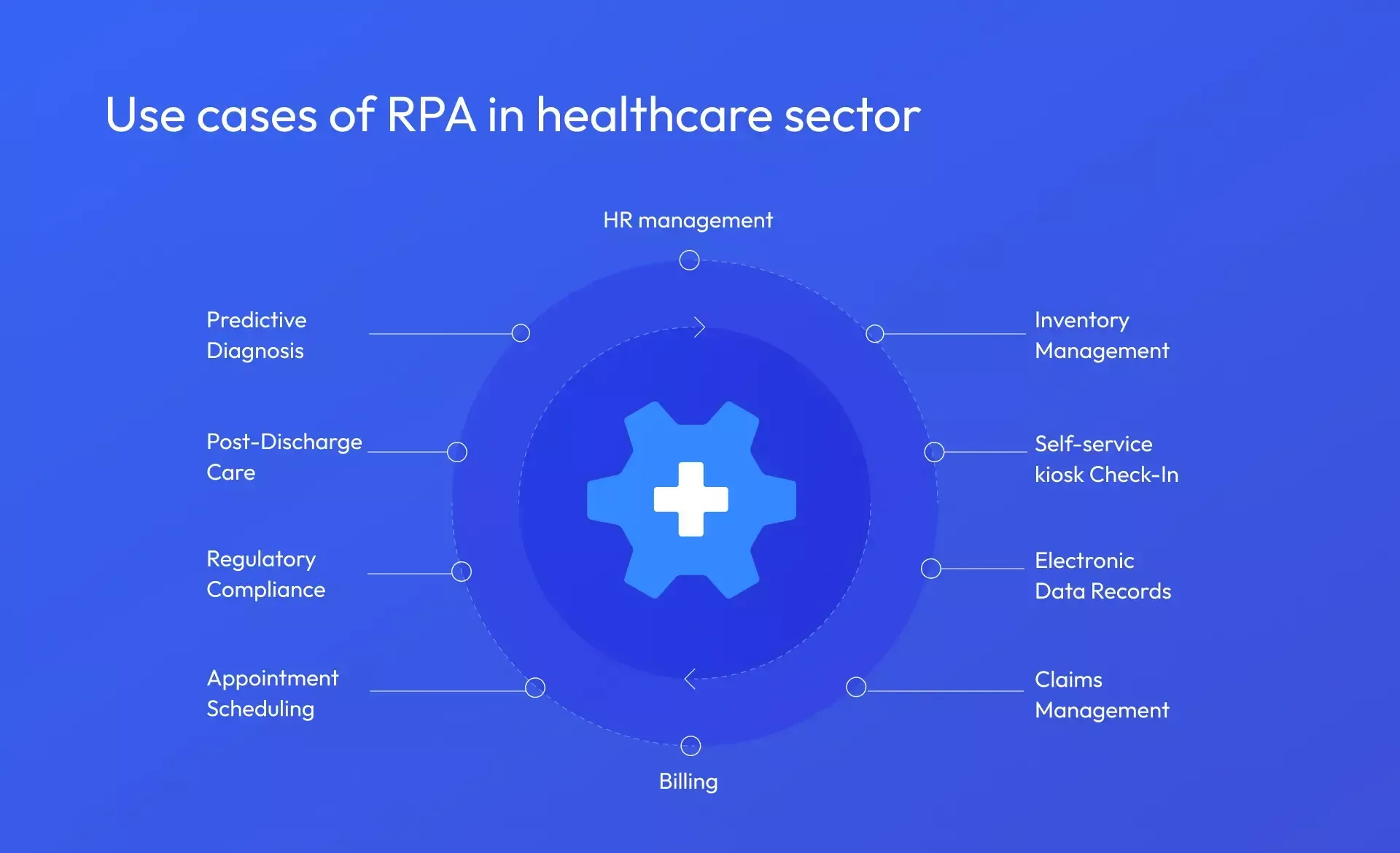
Use case 1: Automated Appointment Scheduling
Patient scheduling and appointment management are among the most time-intensive tasks for healthcare providers.
Outcome: Robotic Process Automation (RPA), integrated with electronic health records, acts as a digital assistant, streamlining in-clinic and call center appointment scheduling by:
- Automating data entry by retrieving patient information
- Increases efficiency by analyzing data, such as symptoms, diagnoses, doctor availability, and patient preferences
- Reducing call times and allowing staff to focus on direct patient care
- Enhancing patient satisfaction by offering seamless appointment creation, reminders, and cancellations
Use case 2: Streamlining Billing and Invoice Processing
Billing and invoice management in healthcare, once labor-intensive and prone to errors, is now being transformed by intelligent automation.
Outcome: RPA bots streamline billing workflows and simplify operations by:
- Connecting critical systems, ensuring accurate charges for insurance and patients
- Extracting and classifying data from both structured and unstructured documents
- Minimizing errors and accelerating payment processes
Use case 3: Accelerating Claims Management
With administrative mistakes responsible for 25% of claim denials and each claim costing about $118, automation significantly reduces financial losses.
Outcome: Robotic Process Automation (RPA) allows providers to speed up claims handling and, in turn, cutting costs by:
- Automating tasks such as eligibility checks
- Reducing administrative errors and resolving missing information
- Securely transferring claims data to a digital management platform
- Minimizing unpaid claims
- Ensuring compliance with changing regulations
Use case 4: Organizing Patient Data Management
Healthcare data is often fragmented across multiple sources, such as GPs, third-party portals, and insurance systems. RPA provides a cost-effective solution to unify and manage this data efficiently, helping an industry that spends $2.1 billion annually on error-prone manual data management.
Outcome: By integrating various applications across health systems, RPA ensures:
- Streamlined data entry for migration of patient records and management
- Access to accurate, up-to-date patient information across clinics, hospitals, and pharmacies
- Reduced administrative tasks and a paper-free environment
Notable examples of Robotic process automation in healthcare include Dorset’s use of RPA through a bot named Wyman for quick GP access to medical records. Another one is Banner Health’s deployment of digital workers to migrate millions of electronic records—saving 1.2 million hours. These demonstrate the transformative potential of RPA in healthcare data management.
Use case 5: Enhancing Diagnostics and Patient Pathways
Healthcare providers generate vast amounts of patient data daily, much of which goes unanalyzed.
Outcome: Robotic Process Automation (RPA) transforms this data into valuable insights that aid in accurate diagnosis and treatment, improving patient experience.
This is done by:
- Integrating RPA into telehealth services, enabling efficient online screening processes, and supporting diagnostics
- Predictive diagnoses and prognoses by analyzing data from sources such as outpatient letters and clinical trials
Use case 6: Optimizing Asset and Inventory Management
Manually locating misplaced equipment from healthcare inventory can disrupt care delivery.
Outcome: By integrating RPA with digital sensors, hospitals can:
- Ensure quick access to critical equipment like ventilators and defibrillators by automating order requests and processes
- Maintain accurate inventories by tracking purchase and usage trends
- Monitor asset conditions and locate organs for transplantation through real-time visibility of storage facilities via a corporate web portal
Use case 7: Post-Discharge Management
The importance of robotic process automation in healthcare is especially notable in post-discharge management. This time is crucial for ensuring patients follow their discharge instructions and maintain a healthy recovery.
Outcome: RPA can assist patients in adhering to post-discharge guidelines and care plans at home by:
- Sending automated reminders through emails or messaging platforms, prompting patients about:
- Upcoming appointments
- Prescriptions to pick up
- Scheduling medications
- Following a specific diet
- Monitoring patients remotely, prompting them to measure vital data like blood pressure and alert healthcare professionals if any concerns arise
Use case 8: Streamlining Patient Onboarding and Self-service kiosk Check-In
Visiting a hospital can be stressful for patients, and streamlining the patient onboarding process is crucial to improving the experience.
Outcome: AI, along with robotic process automation in the healthcare sector, reduces the wait time for medical staff and improves patient satisfaction by:
- Automating data aggregation from digital forms, chats, or emails to generate and update electronic health records (EHRs)
- Letting patients utilize self-service kiosks to directly input their information, which is then automatically transmitted into patient registration software
Use case 9: Optimizing Human Resource Management in Healthcare with RPA
In the healthcare industry, managing human resources effectively is crucial, especially given the ongoing personnel shortages.
Outcome: Robotic process automation in the healthcare ecosystem can help managers to efficiently organize medical staff workload by identifying talent gaps and ensuring accurate and timely payments by:
- Synchronizing data across all staff-related systems
- Allowing HR specialists to easily calculate performance metrics, payroll, full-time equivalents (FTEs), and more
- Linking various people management software to keep them synchronized, ensuring optimal staffing levels for better patient care
Use case 10: Enhancing Regulatory Compliance
Protecting sensitive healthcare data is vital, and compliance with regional regulations like HIPAA in the U.S. or GDPR in Europe is essential for any RPA solution.
Outcome: Beyond efficiency, RPA strengthens cybersecurity by:
- Automatically extracting electronic protected health information (ePHI) from documents, creating secure copies, and storing them in compliant data repositories to meet HIPAA data backup requirements
- Regulating access rights, ensuring compliance with privacy protocols, providing rapid responses to cyber threats
- Scanning patient records for duplicates or incomplete data, flagging them for review by risk and compliance teams
This timely detection and correction of data errors help organizations prepare more effectively for HIPAA audits and maintain compliance.
What is the future of RPA in the healthcare sector?
Medical errors contribute to approximately 250,000 deaths annually in the U.S., highlighting the critical need for improved healthcare processes.
At the same time, global healthcare spending is projected to exceed $10 trillion by 2025, placing immense pressure on the industry to find cost-effective solutions.
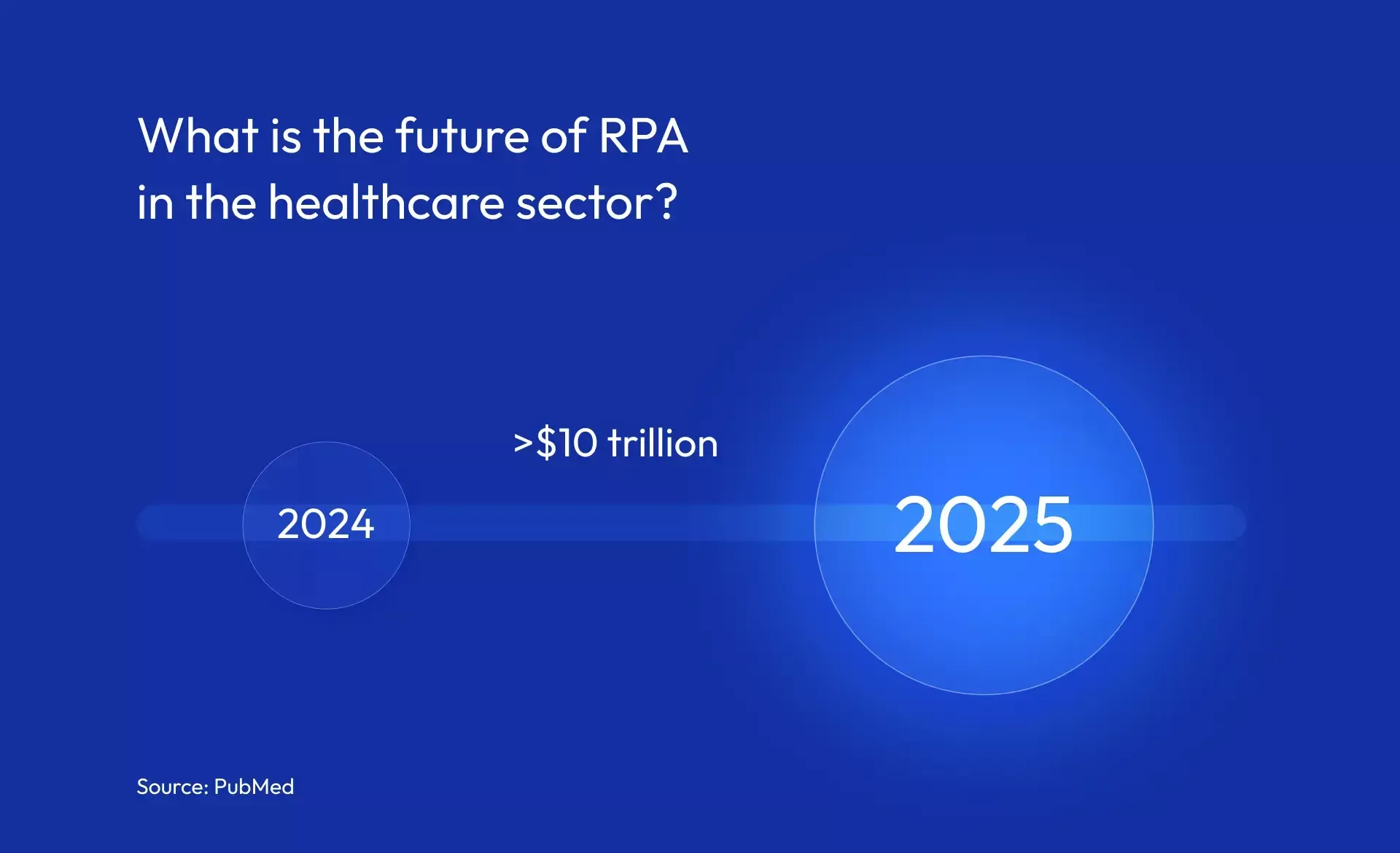
As technology advances, robotic process automation in healthcare emerges as a transformative force with the potential to tackle these challenges.
With its growing adoption, RPA is set to drive substantial progress, reshaping healthcare operations, enhancing efficiency, and improving patient outcomes for years to come.
Email us or Talk to us at +91-98367-81929 or Simply Contact Us through the website.
Let's Connect


